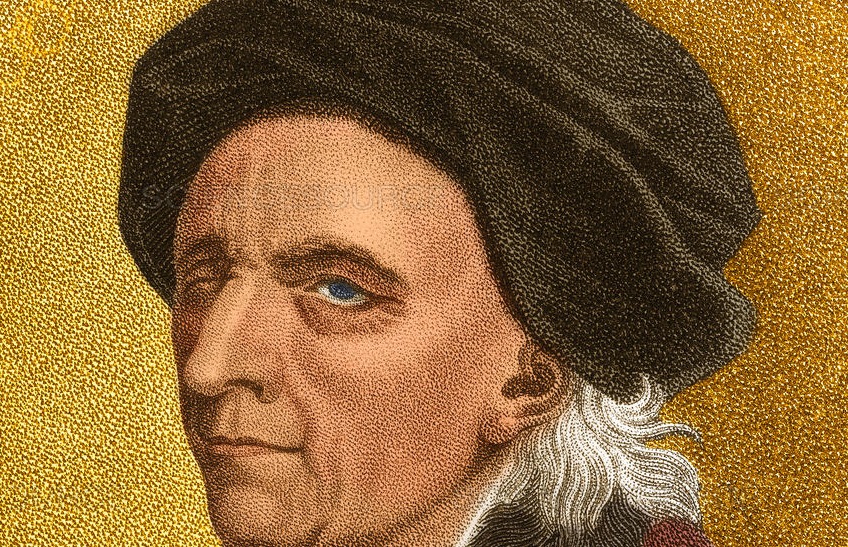Leonhard Euler was a Swiss mathematician, physicist, astronomer, logician and engineer, who made important and influential discoveries in many branches of mathematics, such as infinitesimal calculus and graph theory, while also making pioneering contributions to several branches such as topology and analytic number theory. Take a look below for 30 more strange and interesting facts about Leonhard Euler.
1. He introduced much of the modern mathematical terminology and notation, particularly for mathematical analysis, such as the notion of a mathematical function.
2. He’s known for his work in mechanics, fluid dynamics, optics, astronomy, and music theory.
3. Euler was one of the most eminent mathematicians of the 18th century and is held to be one of the greatest in history.
4. He is widely considered to be the most prolific mathematician of all time.
5. His collected works fill 60 to 80 quarto volumes, which is more than anybody in the field.
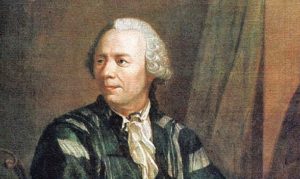
6. He spent most of his adult life in Saint Petersburg, Russia, and in Berlin, then the capital of Prussia.
7. Euler was born on April 15, 1707, in Basel, Switzerland, to Paul III Euler, a pastor of the Reformed Church, and Marguerite nee Brucker, a pastor’s daughter.
8. He had two young sisters: Anna Maria and Maria Magdalena, and a younger brother Johann Heinrich.
9. Soon after the birth of Leonhard, the Eulers moved from Basel to the town of Riehen, where Euler spent most of his childhood.
10. Paul Euler was a friend of the Bernoulli family; Johann Bernoulli was then regarded as Europe’s foremost mathematician, and would eventually be the most important influence on young Euler.
11. Euler’s formal educated started in Basel, where he was sent to live with his maternal grandmother.
12. In 1720, at the age of 13, he enrolled at the University of Basel, and in 1723, he received a Master of Philosophy with a dissertation that compared the philosophies of Descartes and Newton.
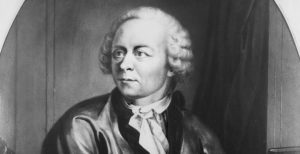
13. During that time, he was receiving Saturday afternoon lessons from Johann Bernoulli, who quickly discovered his new student’s incredible talent for mathematics.
14. At that time, Euler’s main studies included theology, Greek, and Hebrew, at his father’s urging in order to become a pastor, but Bernoulli convinced his father that Euler was destined to become a great mathematician.
15. In 1726, Euler completed a dissertation on the propagation of sound with the title De Sono.
16. At that time, he was unsuccessfully attempting to obtain a position at the University of Basel.
17. In 1727, he first entered the Paris Academy Prize Problem competition; the problem that year was to find the best way to place the masts on the ship.
18. Pierre-Simon Laplace expressed Euler’s important to mathematics: “Read Euler, he is the master of us all.”
19. He is one of the most prolific scholars and thinkers in the field of math, as his writings fill well over 60 quarto volumes.
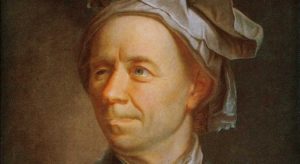
20. In science, Euler wrote extensively on ideas in continuum physics, lunar theory and other areas.
21. There is a Euler’s Number in calculus, that’s represented simply as “e”, which has an approximate value of 2.71828.
22. There is also the Euler-Mascheroni Constant, y, which is often referred to simply as “Euler’s constant.” It has an approximate value of 0.57721.
23. He may be the most well known for his various notations systems, many of which are still used in textbooks today.
24. Of all of his notations, Euler’s most important may be the idea of the function, as he was the first mathematician to designate the function by writing it f(x).
25. In trigonometry, Euler was the first researcher to introduce a written system for the trigonometric functions using the letter “e” as the base.
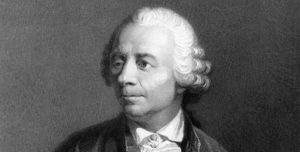
26. Euler and his friend Daniel Bernoulli were opponents of Leibniz’s monadism and the philosophy of Christian Wolff.
27. Euler insisted that knowledge is founded in part on the basis of precise quantitative laws, something that monadism and Wolffian science were unable to provide.
28. Euler’s religious leanings might also have had a bearing on his dislike of the doctrine; he went so far as to label Wolff’s ideas as “heathen and atheistic.”
29. Euler was featured on the sixth series of the Swiss 10-franc banknote and on many Swiss, German and Russian postage stamps.
30. The asteroid 2002 Euler was named in his honor.

